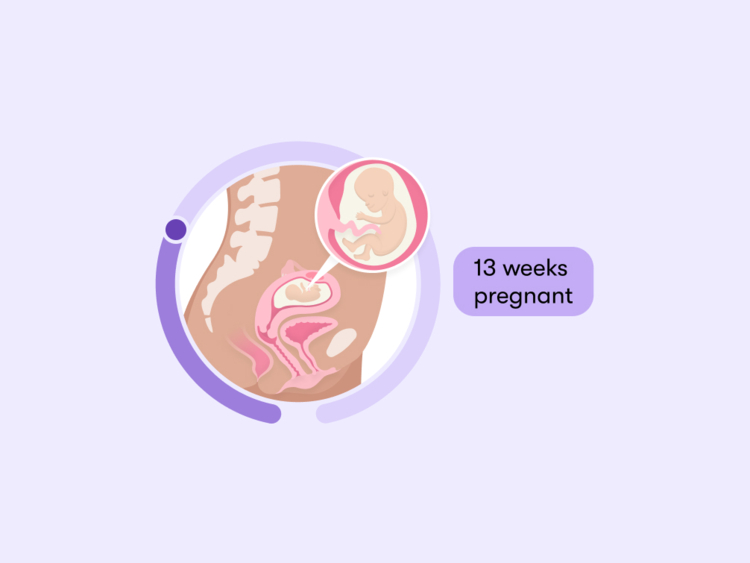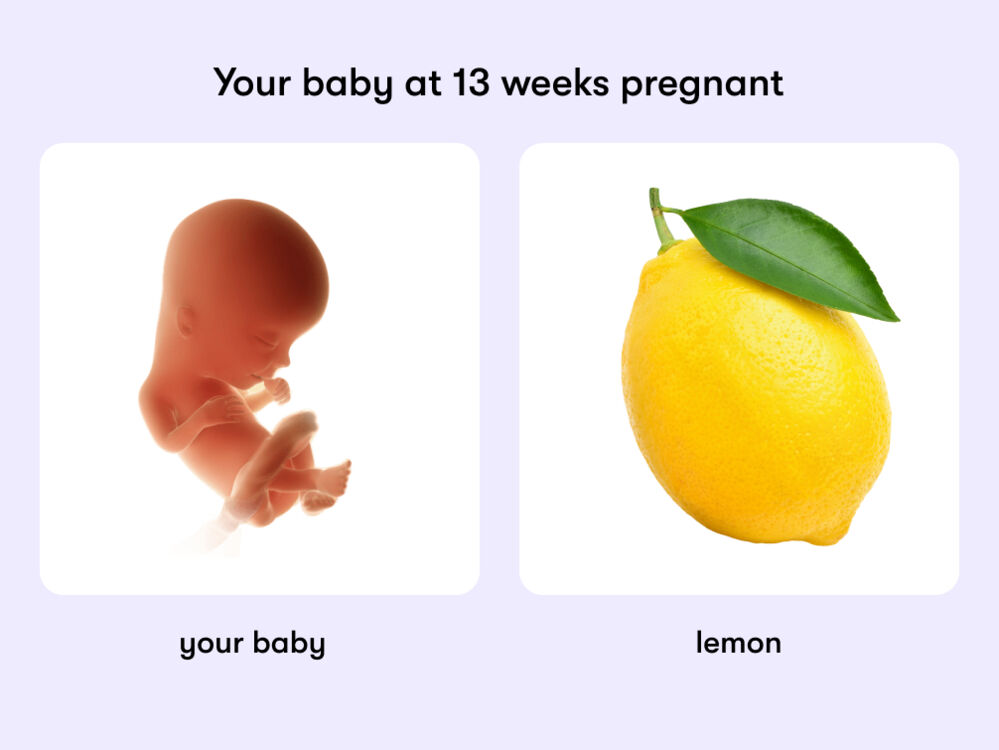Genitals! Urine! Lemons! It’s all happening now that you’ve hit 13 weeks. This is the final week of your first trimester, so you’ll soon be heading into your second trimester. And if you’re wondering how many months are 13 weeks pregnant, you’re into your fourth month of pregnancy now.
As you mark this milestone, let’s dive into what to expect and look out for this week with the help of a Flo expert.
Your baby at 13 weeks pregnant
Their genitals are developing
Your baby’s testes or ovaries are now fully developed inside, and a penis or clitoris is still growing. That means by the time you have your 20-week ultrasound, your doctor should be able to see the sex of your baby on the screen — although you might find it difficult to figure out what you’re looking at!
Their kidneys have developed
By now, your baby’s kidneys have also developed. What’s more, your baby is even beginning to produce urine. And their pee plays a vital role in your pregnancy because, by 20 weeks, it makes up most of your amniotic fluid — the liquid that your baby floats around in to protect and cushion them in your uterus.
How big is a baby at 13 weeks?
Length (crown to rump): Around 6.7 cm or 2.6 in.
Weight: Around 73 g or 2.6 oz.
Size: Equivalent to a lemon
All measurements are approximate and vary within the normal range.



